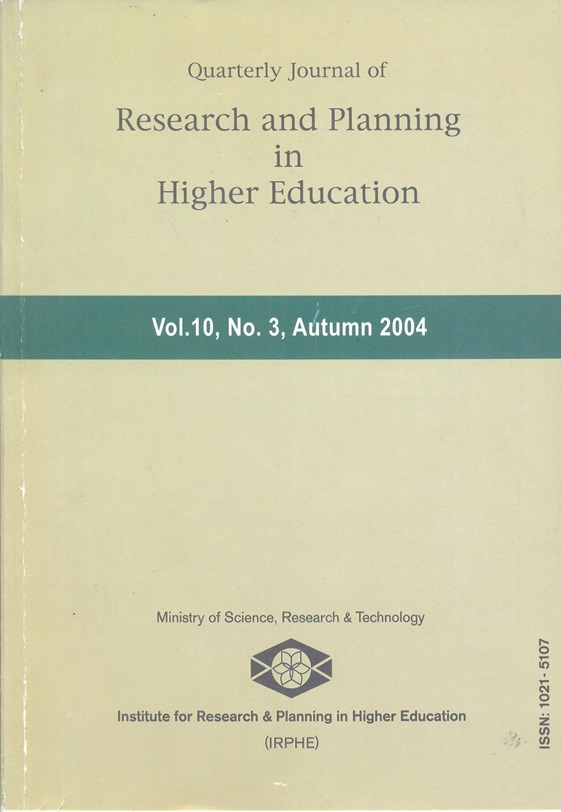The Effectiveness of Educational Workshops : a case study
Authors
1 Faculty Member of Shahid Beheshti University
2 Master in Adult Education
Abstract
In this study, the effectiveness of educational workshops for the development of university instructors is surveyed. Seventy subjects from two universities (Shahid Beheshti University and Medical Science University of Shahid Beheshti) were selected by stratified random sampling method. A Likert type questionnaire was used to collect data. Chi-square, Kruskal-Wallis and U-mann Whitney tests were used to analyze data. The results showed that Workshops:
1. Increased job motivation of instructors (X2=39.67).
2. Influenced on the rate of usage of educational technology in classes (X2=23.94).
3. Increased the skills of doing research in instructors (X2= 31.77).
4. Increased the ability of instructors in terms of decision making process (X2=25.30).
5. Developed equal learning opportunities (X2=26.46) and participatory learning (X2=36.29) for instructors.
6. Developed instructors teaching abilities, including active teaching methods, teaching design, and group discussion (X2=46.77).
The main hypothesis of the research project was confirmed and it showed that educational workshops were effective in the sample Universities. In addition the statistical analysis showed that there was no significant difference between the attitudes of the two universities in terms of the effectiveness of workshops on teaching and research process. However there was a significant difference between the attitudes of instructors in terms of moderator variables such as age, degree, field of study, and the number of their participation in workshops.
Keywords
 Quarterly Journal of Research and Planning in Higher Education
Quarterly Journal of Research and Planning in Higher Education
